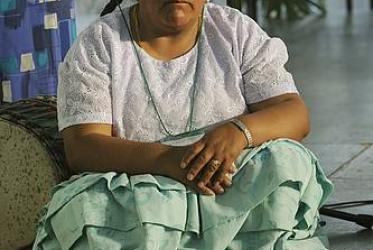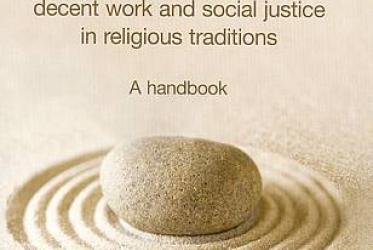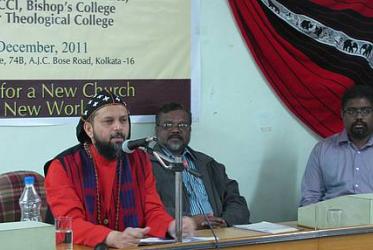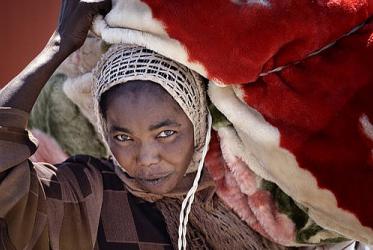Displaying 1481 - 1500 of 1719
22 March 2012
Churches say “No more violence in the name of God”
05 March 2012
WCC disowns doctrine used against Indigenous Peoples
27 February 2012
WCC expresses concern over human right violations in Tanah Papua
24 February 2012
Called to Be the One Church: Faith and Order at Crete
Report of the 2009 Meeting of the Plenary Commission — Faith and Order paper No.212
15 February 2012
Christian self-understanding in the context of indigenous religions
14 February 2012
Youth longing for peace in the Arab world
06 February 2012
WCC speaker addresses Catholic superiors general
30 January 2012
Working together for social justice and decent work
23 January 2012
A church that excludes cannot be holy, assert Indian churches
21 December 2011
Equal rights for all the measure for assessing freedom of religion
06 December 2011
Churches will tackle migration issues in Beirut
30 November 2011
New WCC statement on mission and evangelism in process
29 November 2011
The world of mission and evangelism experiences big changes
29 November 2011
Canadian churches reflect on identity in a multi-religious world
28 November 2011













